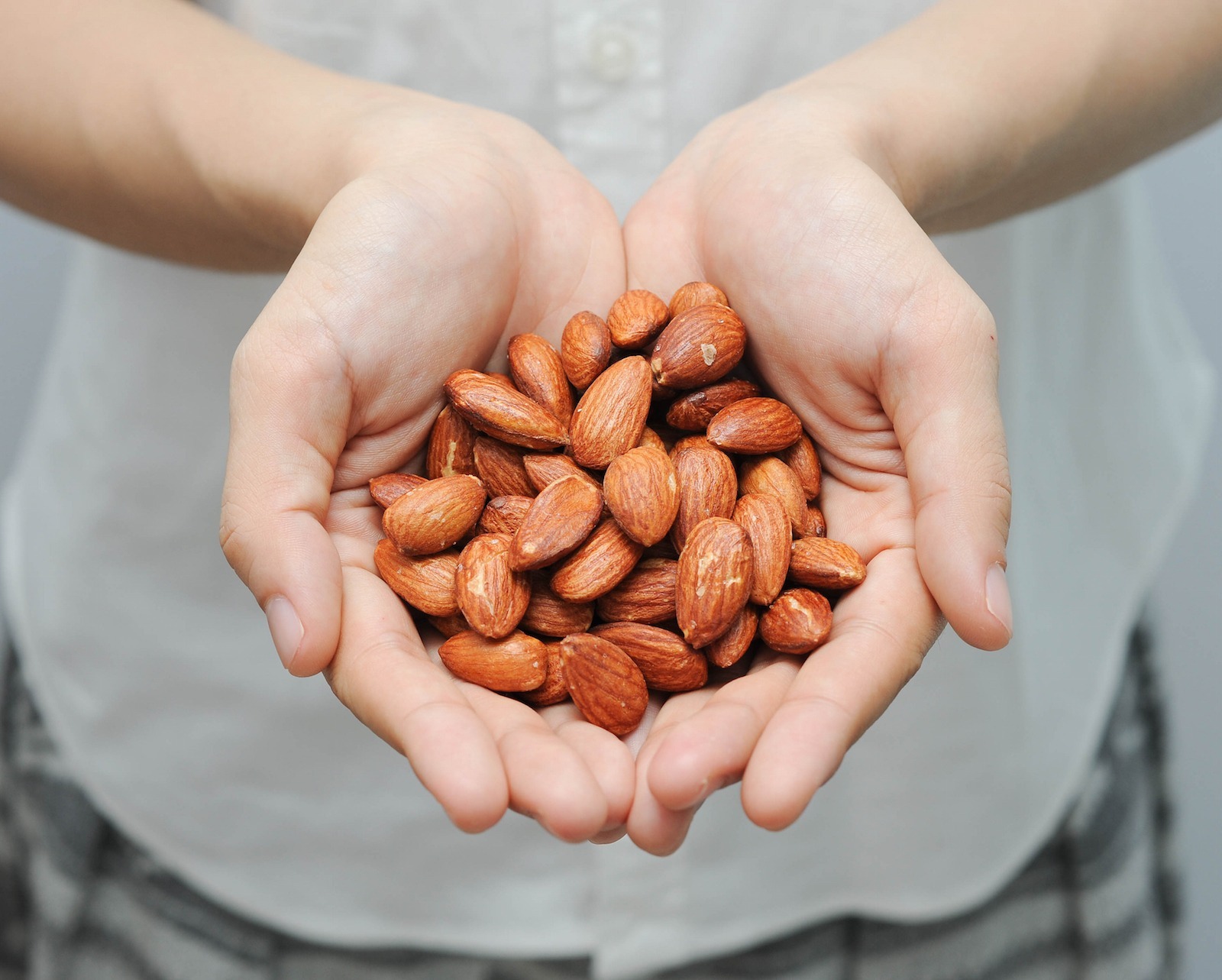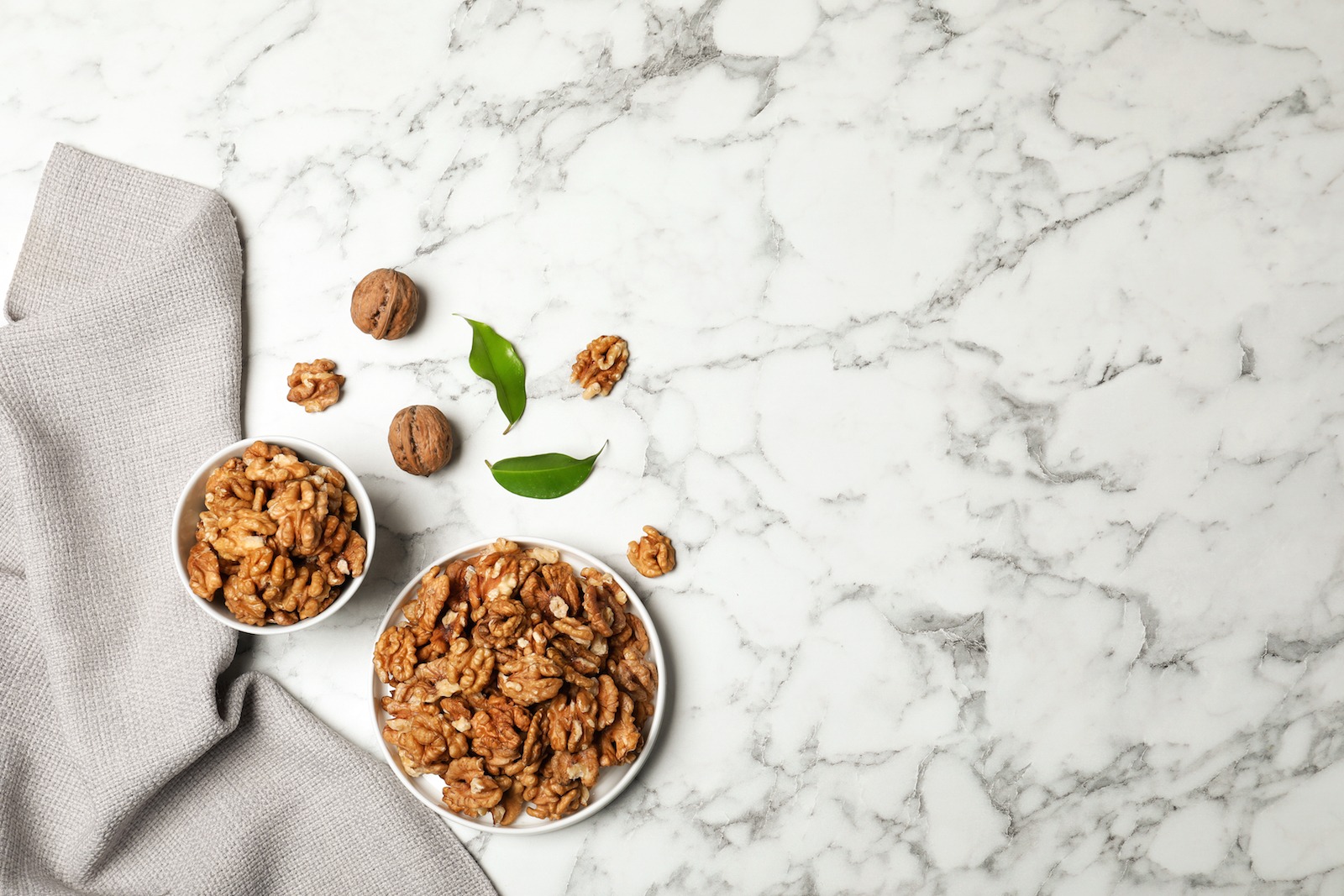 Eat Empowered
Eat Empowered  Healthy Eating Tips
Healthy Eating Tips  Healthy Snacking Ideas
Healthy Snacking Ideas
Raw vs. Roasted vs. Sprouted: Which Nuts Are Healthiest?
Home » Eat Empowered » Raw vs. Roasted vs. Sprouted: Which Nuts Are Healthiest?
By Keri Glassman, MS, RD
So you put “nuts” on your shopping list for easy on-the-go snacking. Then you get to the grocery store and realize it’s not as simple as deciding between almonds, cashews, and pistachios. Apparently, you’ve also got to choose between raw vs. roasted vs. sprouted. And what are “activated” nuts, anyway?
First of all, the important thing to remember is that eating nuts, almost any nuts (except those that have been sprinkled with way too much salt and sugar), is a good idea.
Nuts are a great source of plant protein and healthy fats. They also all provide many valuable micronutrients, including vitamins, minerals, and powerful antioxidants. Think selenium in Brazil nuts and tocopherols and catechins in walnuts.
Here’s what you need to know about the many ways they’re sold, so you know what you’re picking off the shelf.
Raw Nuts
It’s pretty obvious that raw nuts are generally nuts that have been minimally cooked. They should just be the whole, unprocessed nuts, with all of those nutrients I mentioned earlier happily intact. Many people choose raw over roasted for that reason.
RELATED: Does Cooked Food Have More Calories Than Raw Food?
The problem with raw nuts is that they’re more likely to contain bacteria. Because of that, it’s required that some are pasteurized, which may be a good thing. Except, that might mean they’re not as “raw” as you think. The law requires that almonds from California (which is almost all almonds), for example, are heat pasteurized. Depending on the exact process used, that may mean they’re exposed to the same high heat you’re trying to avoid by skipping roasted.
 In other words, the term “raw” on a package may not be a reliable indicator that the nuts haven’t been exposed to heat, so if you’re really intent on getting them super raw, it’s best to do some homework on the company or ask your grocer if the nuts in the bulk bin were heat pasteurized.
In other words, the term “raw” on a package may not be a reliable indicator that the nuts haven’t been exposed to heat, so if you’re really intent on getting them super raw, it’s best to do some homework on the company or ask your grocer if the nuts in the bulk bin were heat pasteurized.
Roasted Nuts
You’d expect roasted nuts, on the other hand, to have been exposed to heat. Nuts can be roasted dry or with oil, but it’s usually unclear which method has been used. (The good news is that if they’re roasted with oil, you don’t really have to worry about how much of that oil you’re getting, because nuts don’t absorb much of it at all.)
The first contentious issue with roasting is whether or not the process degrades nutrients. Some research has shown roasting at high temperatures for long periods of time can lead to oxidation of the healthy fats in nuts (especially walnuts). Studies have also indicated roasting can reduce levels of vitamins and certain antioxidants, but there are many variables, including the kind of nut, length of the process, and temperature. And heat can also improve your body’s ability to utilize certain nutrients.
The second issue with roasting is acrylamide, a compound that is formed naturally during the roasting process (especially in almonds) and has been linked to cancer risk in animal studies. Various agencies classify the compound as a “probable human carcinogen,” but there are no human studies showing increased risk of cancer based on dietary exposure to acrylamide or at what quantity it might be unhealthy.
RELATED: 5 Delicious Foods for Cancer Prevention
In terms of benefits, roasting reduces the risk of contaminants like bacteria, and most people agree that it makes nuts more delicious.

At this point, what we know about how roasting changes nutrients suggests it’s likely not a big enough change that it will make a major difference for your health. However, if you’re worried about losing nutrients or acrylamide, here’s what you can do: Instead of buying nuts roasted, buy them raw and then roast them in the oven at a low temperature (since nutrient loss and acrylamide formation happens much more at higher temperatures used by large processing facilities).
Sprouted Nuts
Okay, now to the sprouted variety. Sprouted nuts are raw nuts that have been soaked in order for the nut to begin to germinate (AKA it starts to grow, putting out tiny shoots). Activated nuts are basically the same, although many people add salt to the soaking process. When nuts are sold sprouted or activated, they’re generally dried or dehydrated before they’re packaged.
People generally say sprouting makes plant foods easier to digest and your body more able to absorb some of the nutrients. There’s some evidence that that’s true for grains, but with nuts things are a little more complicated.
RELATED: A Modern Guide to Ancient Grains
The primary argument for sprouting or activating nuts is that they contain a compound called phytic acid, or phytate. Phytate impairs the body’s ability to absorb some of the minerals in the nuts, including, iron, zinc, and calcium. Soaking grains and legumes (via sprouting or activating) reduces levels of phytate, so it stands to reason the same would be true for nuts. Therefore, many people propose soaking nuts to lower phytate levels so your body benefits from the minerals.
However, some research suggests that soaking does not lower phytate levels as much in nuts, and that the GI benefits you get from soaking grains/legumes don’t necessary apply to nuts, either. To add to that, phytate is not all bad. It actually has some antioxidant and anti-inflammatory effects. So if you get rid of it, you may get more minerals, but you may be missing out on other beneficial nutrients.
For all of these reasons, it doesn’t really make sense to me to spend the extra money to buy activated nuts. But if you’re intrigued by them, there’s no issue with eating them.
The Bottom Line on Nuts
All nuts—raw, roasted, or sprouted—are nutrient-dense, healthy foods you should definitely be eating. Based on what we know now, choosing one over another likely won’t make a huge difference in your health.
But depending on your diet and preferences, one might work better for you. If flavor is what matters in terms of getting more nuts into your regular routine, go for roasted. If you tend to have GI issues when you eat lots of plants or are a vegan with few other sources of minerals, maybe activated is worth trying.
The Nutritious Life Editors are a team of healthy lifestyle enthusiasts who not only subscribe to — and live! — the 8 Pillars of a Nutritious Life, but also have access to some of the savviest thought leaders in the health and wellness space — including our founder and resident dietitian, Keri Glassman. From the hottest trends in wellness to the latest medical science, we stay on top of it all in order to deliver the info YOU need to live your most nutritious life.
RECENT ARTICLES

Want a sneak peek inside the program?
Get FREE access to some of the core training materials that make up our signature program – Become a Nutrition Coach.
Get Access"*" indicates required fields













































































































































































































































































































































































































































































































































































































































































































































































































































































































































































































































































































































































































































































































































































































































